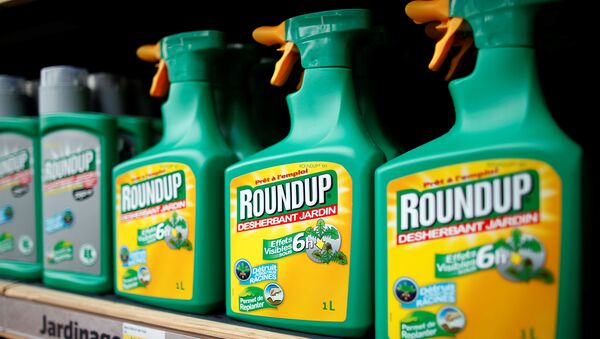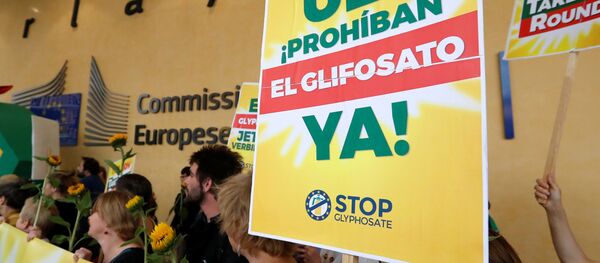Monsanto has stepped up attacks onthe World Health Organization's International Agency for Research on Cancer (IARC). In 2015, the agency published a report which stated that the Monsanto product glyphosate is "probably carcinogenic to humans."
Monsanto is now seeking an external probe into the workings of the IARC and its leadership. It claims that the IARC overlooked a study that suggested the herbicide was safe.
Dr. Stephanie Seneff, a senior research scientist at the Massachusetts Institute of Technology who has carried out an extensive research on the subject, told Radio Sputnik that the study in question is unreliable and should not be used to debunk the IARC finding.
"They claimed that there was a study that was overlooked and they should have paid attention to it. Of course, this study had Monsanto funding, it was incomplete, it had not yet been published and the IARC does not look at any studies that are incomplete and unpublished."
"Glyphosate is the most important toxic chemical in our environment today," which is used extensively and carelessly by people who have been persuaded that the chemical is safe due to Monsanto's campaign, Seneff said.
"It is insidiously, cumulatively toxic to all life on Earth and particularly to humans. I think the US is being exposed to enormous amounts of glyphosate in our food, and we are seeing the effects in terms of health problems. Autoimmune diseases, neurological diseases, all kinds of things that are happening to our population and causing a healthcare crisis."
"I think the reason is because glyphosate is getting into the proteins by mistake in place of the amino acid glycine. This is a very controversial topic and I've really gone out on a limb to say that this is happening. It is really insidious, cumulatively toxic effect of glyphosate to get into all the proteins of the body and in certain proteins cause a tremendous amount of dysfunction."
"I think it is an absolute monster molecule and it needs to be banned."


